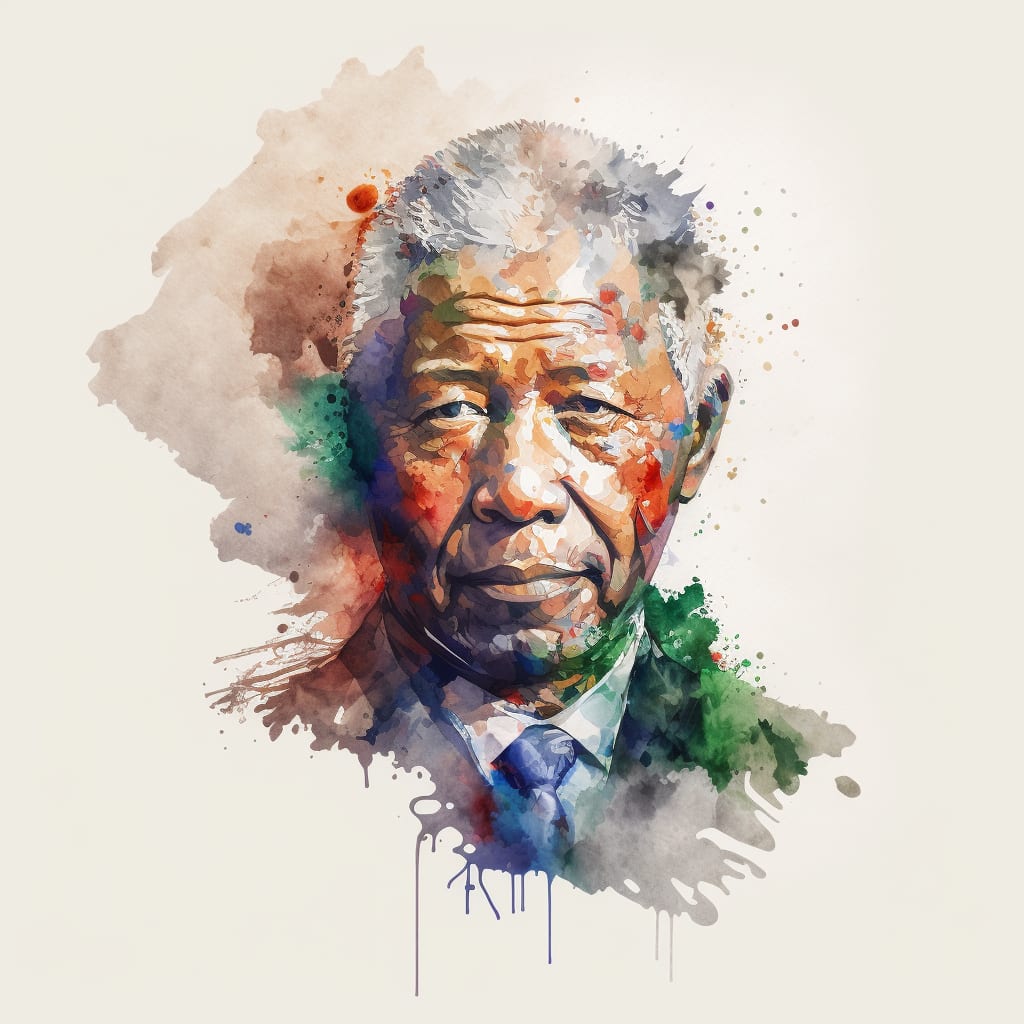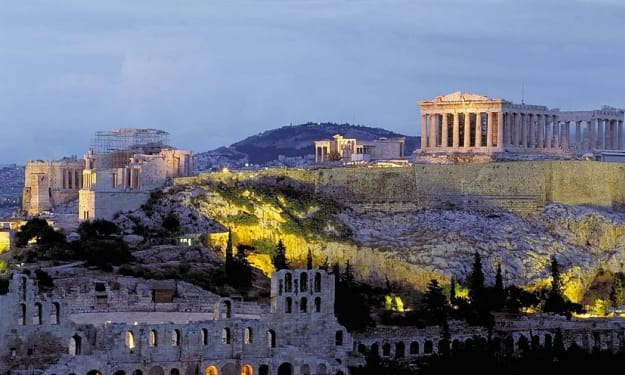Content warning
This story may contain sensitive material or discuss topics that some readers may find distressing. Reader discretion is advised. The views and opinions expressed in this story are those of the author and do not necessarily reflect the official policy or position of Vocal.
Nelson Mandela
The Iconic Symbol of Freedom and Equality

Title: Nelson Mandela: The Iconic Symbol of Freedom and Equality
Introduction
Nelson Mandela, a revered global leader and an embodiment of courage, resilience, and forgiveness, stands as an everlasting symbol of hope and justice. Through his unwavering commitment to ending apartheid in South Africa and his lifelong struggle for human rights, Mandela became an iconic figure, inspiring generations across the globe. This blog explores the extraordinary life and achievements of Nelson Mandela, highlighting his pivotal role in dismantling racial segregation and fostering unity in a nation torn apart by discrimination.
Early Life and Activism
Born on July 18, 1918, in Mvezo, a small village in South Africa, Nelson Rolihlahla Mandela grew up in a society plagued by racial inequality and injustice. His early experiences with discrimination fueled his determination to fight for justice. Mandela's involvement with the African National Congress (ANC) began in the 1940s, where he actively campaigned against apartheid policies and advocated for the rights of the marginalized black population.
Imprisonment and Robben Island
Mandela's tireless efforts for equality and his resolute opposition to apartheid led to his arrest in 1962. Sentenced to life imprisonment, Mandela spent 27 years incarcerated, mostly on Robben Island. Despite the harsh conditions, Mandela continued to be an influential force, organizing resistance from within the prison walls. His resolve and unwavering commitment to justice made him an iconic figure for the anti-apartheid movement.
Emergence as a Global Figure
Following years of international pressure and internal shifts, the apartheid regime began to crumble. In 1990, Nelson Mandela was finally released from prison, heralding a new era of hope and reconciliation in South Africa. Mandela's remarkable ability to forgive and promote reconciliation became evident as he worked tirelessly to unite the deeply divided nation.
Presidency and Legacy
In 1994, South Africa held its first democratic elections, and Nelson Mandela emerged as the nation's first black president. Mandela's presidency marked a turning point in the history of South Africa, as he aimed to bridge racial divides and establish a society based on equality and justice. He championed initiatives to address poverty, healthcare, and education while promoting national unity and reconciliation through the Truth and Reconciliation Commission.
After leaving office in 1999, Mandela continued his advocacy work, focusing on global issues such as HIV/AIDS and conflict resolution. His unwavering commitment to peace earned him numerous accolades, including the Nobel Peace Prize in 1993.
Nelson Mandela's lifetime of activism and leadership was marked by numerous significant achievements and contributions. Here are some of his famous works:
1. Anti-Apartheid Activism: Mandela's early involvement in the African National Congress (ANC) saw him playing a pivotal role in the struggle against apartheid, a system of racial segregation enforced by the South African government. He organized protests, strikes, and acts of civil disobedience to challenge apartheid laws and advocate for equal rights for all South Africans.
2. Rivonia Trial: In 1963, Mandela and other ANC leaders were arrested and put on trial for sabotage and conspiracy against the apartheid regime. Mandela's famous "Speech from the Dock" during the trial captured the world's attention and demonstrated his unwavering commitment to freedom and equality. Despite being sentenced to life imprisonment, Mandela's powerful words resonated with people both within South Africa and internationally.
3. Long Walk to Freedom: While imprisoned on Robben Island and later in Pollsmoor Prison, Mandela wrote his autobiography, "Long Walk to Freedom." Published in 1994, this memoir chronicles his early life, activism, and imprisonment, providing a vivid account of the struggle against apartheid. The book became an international bestseller and offered a personal insight into Mandela's journey towards reconciliation and forgiveness.
4. Negotiations and Reconciliation: Following his release from prison in 1990, Mandela played a central role in negotiating the end of apartheid and the transition to democracy in South Africa. His remarkable ability to promote forgiveness and reconciliation helped avert a potential bloodbath and paved the way for the peaceful dismantling of apartheid.
5. First Black President of South Africa: In 1994, Mandela made history by becoming the first black president of South Africa in the country's first multiracial democratic elections. Mandela's presidency focused on healing the wounds of apartheid, fostering national unity, and promoting social justice. His leadership laid the foundation for a more inclusive and equal society.
6. Truth and Reconciliation Commission (TRC): Under Mandela's presidency, the TRC was established to address the human rights violations committed during the apartheid era. The commission provided a platform for victims and perpetrators to tell their stories and seek reconciliation. Mandela's support for the TRC demonstrated his belief in the power of forgiveness and the need to confront the painful past to build a better future.
These are just a few of the notable works and achievements of Nelson Mandela. His lifelong dedication to justice, equality, and reconciliation left an indelible mark on the world, inspiring generations and reminding us of the power of humanity to overcome adversity and create lasting change.
Conclusion
Nelson Mandela's life and legacy serve as an indomitable testament to the power of perseverance, forgiveness, and the fight for justice. His ability to overcome adversity, his unyielding determination to dismantle apartheid, and his unwavering commitment to reconciliation make him a source of inspiration for people worldwide. Mandela's vision of a society free from discrimination and inequality continues to guide us, reminding us that the struggle for justice is an ongoing endeavor. As we celebrate the life and achievements of Nelson Mandela, may we be inspired to champion his ideals of freedom, equality, and compassion in our own lives and communities.
About the Creator
Openee Article
Openee Article . Specializing in writing artcile about Entertainers,Scientists,etc... we have a talent for making complex subjects accessible and engaging to a wide audience.
Enjoyed the story? Support the Creator.
Subscribe for free to receive all their stories in your feed. You could also pledge your support or give them a one-off tip, letting them know you appreciate their work.






Comments
There are no comments for this story
Be the first to respond and start the conversation.